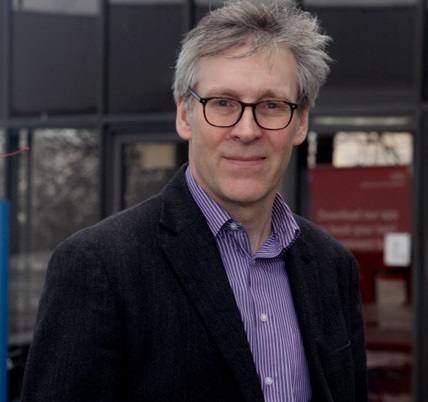New organ donation process enables pioneering diabetes research
Pioneering research into the causes and treatment of diabetes will be led by Newcastle University thanks to a new national programme allowing scientists to study the pancreases of people with the condition.
Before now, organ donors with diabetes were not able to donate their pancreas for medical research due to restrictions in place.
New arrangements introduced will allow people with the chronic condition to contribute to a better understanding of diabetes through organ donation after their death.
Previously, as the pancreas has not been removed, or even sampled following the death of people with diabetes during organ donation for transplantation, research into the mechanisms preventing normal pancreatic insulin production in diabetes has been limited to the small number of post-mortem samples currently stored in the UK.
New process
Thanks to a collaboration between experts at Newcastle and Oxford Universities, in partnership with NHS Blood and Transplant, new arrangements have been implemented to allow people with diabetes to donate their pancreas.
The Increasing the Number of Organs Available for Research (INOAR) task force, set up by NHS Blood and Transplant, has enabled this new opportunity for UK-led research into diabetes and other chronic diseases as it will also allow the retrieval of un-transplantable hearts and lungs from organ donors for research.
 Professor James Shaw, from Newcastle University’s Faculty of Medical Sciences, is leading human pancreas work as Director of Newcastle Transplant Regenerative Medicine Laboratories.
Professor James Shaw, from Newcastle University’s Faculty of Medical Sciences, is leading human pancreas work as Director of Newcastle Transplant Regenerative Medicine Laboratories.
He said: “This is a really exciting change which will accelerate our progress in understanding diabetes and further strengthen our collaborations across the UK and beyond.
“Before this final hurdle was overcome, even though everything else was in place and people with diabetes were asking for their pancreas to be used for research after their death, obtaining this tissue was difficult.
“Here at Newcastle University we have established a tissue bank containing 72 pancreases from people without diabetes, but we have not been able to compare the differences between these and ones from donors with diabetes.
“Now, we are able to accept pancreases with diabetes to carry out pioneering research to understand the mechanisms of diabetes and develop new treatments.
“This is an exciting development for people with all types of diabetes, as we are building a bank of organs to provide an invaluable new resource for researchers nationally and worldwide.”
Exciting development
Almost 4 million people in the UK are living with diabetes. The condition occurs when the pancreas doesn’t produce enough insulin, or when it can’t produce any at all, which leads to blood glucose levels being too high.
Dr Elizabeth Robertson, Director of Research at Diabetes UK, said: “This is an exciting step forward that we hope will rapidly advance our understanding of the causes and progression of diabetes, opening up new avenues of research that could lead to new treatments for all types of the condition.
“We hope that researchers will benefit from this opportunity to explore the fundamental biology of the pancreas in people with diabetes.
“World-class scientists will now have vital access to pancreatic tissue, propelling our knowledge of diabetes forward and bringing us a step closer to a world where diabetes can do no harm.”
Processing of the donated pancreases will be done by a team at the Transplant Regenerative Medicine Laboratories in Newcastle and in Oxford. The work has been enabled by the Quality in Organ Donation (QUOD) programme, led by Professor Rutger Ploeg at Oxford University, with dedicated funding for the current research from the Medical Research Council.
Rutger Ploeg, Consultant Transplant Surgeon and Professor of Transplant Biology at Oxford University, said: "Thanks to this exciting development, via its national collaboration the QUOD programme, has a unique opportunity to provide previously inaccessible tissue to researchers, generating enormous opportunities to achieve benefits for our patients.”
Maximising research
The changes from INOAR also allows the procurement of other organs specifically for research. This will lead to heart and lung research, led by Newcastle University, with the initial research goal of developing ways more donated organs can be converted into successful life-saving transplants. This will help NHS Blood and Transplant achieve their target of maximising donor organ use, building on the mechanisms which are now in place to increase organ donation.
Clare Denison, Lead Specialist - Innovation and Research ODT at NHS Blood and Transplant, said: “This is a significant moment for our organisation and researchers across the country. INOAR will change the face of transplantation and ultimately improve patient outcomes and quality of life in the future.”
Rachel Connor, Director of Research Partnerships at the type 1 diabetes charity JDRF, added: "We're delighted that this step will allow people with diabetes to make these precious gifts of tissue and enable scientists to gain new insights that could be critical in our understanding of this lifelong, life-changing condition.”
